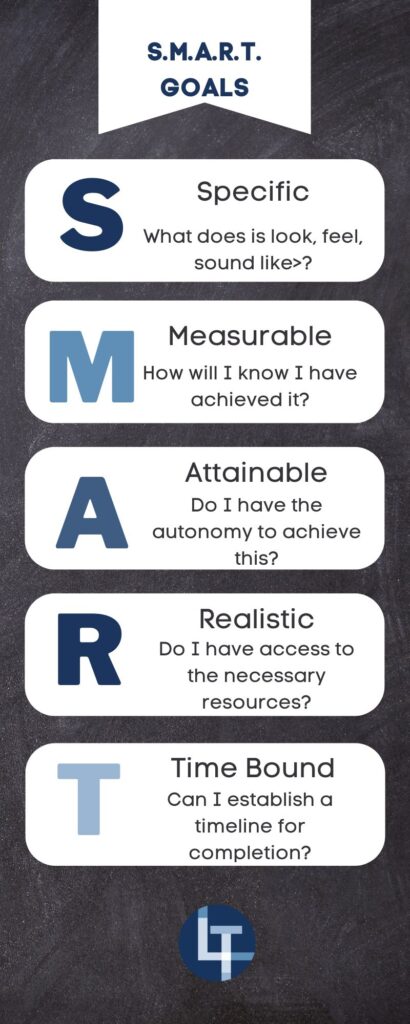So often leaders manage their tasks day-to-day. Sometimes they even create complex color coded checklists for each day. These look so impressive. I have fallen into this trap myself. This approach can give us the illusion we are accomplishing great things. Wow! I got 16 things done today on my TO DO list. I kicked butt!
Transformational leaders, however, look beyond the day. They create annual goals that are connected to their organization’s vision, mission, and strategic plan. This long-range approach coupled with daily disciplines around scheduling our task list on a quarterly, monthly,and weekly basis weed out what Steven Covey refers to as the tyranny of the Quadrant 3: Urgent but not important.
Below are some principles to consider as you begin to move beyond your daily task list.
Develop annual goals.
- Your annual goals should focus on moving your organization and your leadership capacity forward.
- Annual goals are not actions.

- Annual goals communicate a big picture ideal outcome that you want to achieve.
- Using the common acronym S.M.A.R.T. will help you to create goals that will move you forward.
- Establish quarterly benchmarks that are connected to annual goals.
- A benchmark might be a project, event, or major activity that will move you toward your big goal.
- A benchmark might take weeks to months to complete.
- A benchmark requires multiple steps and daily tasks to achieve.
Review your calendar monthly to plan and assess progress on your quarterly benchmarks.
- Determine what needs to show up on your calendar in the coming month to accomplish your quarterly benchmarks.
- Determine what needs to come off your calendar or be rescheduled.
- Reschedule key tasks that were missed or not completed.
- Look for barriers in your schedule that may impact your progress.
Consistently manage your weekly tasks to ensure they align with your goals, quarterly benchmarks, and monthly calendar..
- Hyper focus on the ones that do. Make sure they are prioritized.
- Inevitably, unexpected tasks will pop up. Assess the importance and urgency of these tasks.
- Reschedule or delegate those that do not need to be accomplished that day.
Examine your daily tasks and meeting lists at the beginning and end of each day. It is important to do this both at the beginning and end of each day. Things happen overnight. Messages are received. Unexpected events or emergencies happen. Team members call out.
- Prioritize strategic tasks/meetings.
- Reschedule prioritized tasks that are interrupted due to unforeseen reasons.
- Remove unnecessary tasks/meetings.
